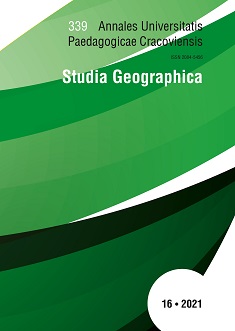Subject basics of entrepreneurship in the opinion of students and graduates of secondary schools in Poland
DOI:
https://doi.org/10.24917/20845456.16.12Abstract
The subject named „The basics of enterprise” has been launched to all types of upper-secondary schools in 2002 (MENiS, 2002). The current reform of education carries many changes in schools’ functioning, moreover, it gives the possibility to change the ways of teaching various subjects. In the beginning of the reform it is worth to consider how students perceive “The basics of enterprise” as a school subject in order to improve quality of the lessons. Author of this work presents the results of research connected with students and graduates of the upper-secondary schools’ opinion collected in Poland in 2018. In the survey students evaluated different aspects of the lessons: pointing to their favourite educational method, sources of information, forms of work, also, defining the most important, according to their opinion, practical skills and what is more, evaluating the whole subject in general as well as pointing to the most important remits of the teacher. The research has been conducted with
the method of diagnostic survey on the group of 326 upper-secondary school students. The results have been compared to results of the survey given only to students from małopolskie
voivodeship in 2018 and in 2004 as well as in 2011 on similar experimental group. Analysis of the results has shown that students evaluate many aspects of “The basics of enterprise” teaching as negative.
References
Kondraciuk, P., Osuch. W., Świętek, A. (2019). Przedmiot podstawy przedsiębiorczości w opinii uczniów i absolwentów małopolskich szkół ponadgimnazjalnych. Przedsiębiorczość-Edukacja, 15(1), 75-87. doi: 10.24917/20833296.151.6
Osuch, W. (2012). Podstawy przedsiębiorczości w opinii uczniów krakowskich liceów - szanse i oczekiwania. Przedsiębiorczość-Edukacja, 8, 37-47.
Osuch, W., Osuch, E. (2005). Przedmiot podstawy przedsiębiorczości w opinii uczniów i rodziców na przykładzie wybranych krakowskich szkół. Przedsiębiorczość-Edukacja, 1,
-202.
Podstawa programowa kształcenia ogólnego (dla liceum ogólnokształcącego, liceum profilowanego i technikum), Rozporządzenie Ministra Edukacji Narodowej i Sportu z dn. 26 lutego 2002 r., Warszawa.
Ramowy plan nauczania w szkołach publicznych, Rozporządzenie Ministerstwa Edukacji Narodowej z dn. 7 luty 2012r., Warszawa.
Świętek, A. (2012). Oczekiwania, a realia wejścia ludzi młodych na rynek pracy jako wyzwanie dla edukacji z przedsiębiorczości. Przedsiębiorczość- Edukacja, 8, 137-157.
Tracz, M. (2006). Rola i znaczenie podstaw przedsiębiorczości w kształceniu ogólnym. Przedsiębiorczość-Edukacja, 2, 222-225.
Tracz, M. Rachwał, T. (2007). Przedmiot podstawy przedsiębiorczości - założenia realizacji, a przygotowanie nauczycieli. Przedsiębiorczość-Edukacja, 3, 286-296.
Ziółkowska-Weiss, K. (2014). Problematyka podstaw przedsiębiorczości w opinii uczniów
szkoły ponadgimnazjalnej. Przydatność w życiu czy konieczność nauki? Przedsiębiorczość-Edukacja, 10, 366-377.
Downloads
Published
Issue
Section
License
The submission of a paper to be published is synonymous with an agreement to transfer the copyright free of charge from the author to the publisher. The author also agrees to permit the publisher to publish the paper in printed form, open access online form, digital library form and other digital platforms with which the publisher has or will have a publishing agreement. Furthermore, the author agrees to not limit the number of copies that may be printed or issued by the publisher. In the case of co-authored papers, it is assumed that the corresponding author is authorized to represent the remaining co-authors in this respect. Authors are requested to sign a copyright declaration.

